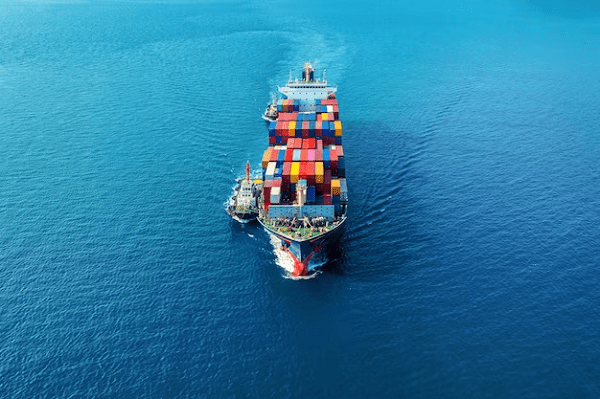Water‐importance- Water is of paramount importance to life on Earth and plays a crucial role in various aspects of our existence. Here are some key reasons why water is essential:
- Survival: Water is vital for the survival of all living organisms, from plants and animals to humans. Our bodies are composed of about 60% water, and we need a constant supply of it to maintain basic bodily functions.
- Hydration: Proper hydration is necessary for maintaining bodily functions, including regulating body temperature, digestion, circulation, and waste elimination. Dehydration can lead to a range of health problems and can even be life-threatening in severe cases.
- Nutrient Transport: Water is the primary medium for transporting nutrients and oxygen to cells in the body. It is also responsible for removing waste products and carbon dioxide from the cells.
- Digestion: Water is essential for breaking down food and absorbing nutrients during the digestive process. It helps in the breakdown of complex molecules in the stomach and intestines.
- Temperature Regulation: Water has a high heat capacity, which means it can absorb and release heat slowly. This property helps regulate body temperature and is crucial for maintaining a stable internal environment.
- Habitat for Biodiversity: Water bodies, such as rivers, lakes, oceans, and wetlands, provide habitats for a diverse range of plant and animal species. These ecosystems are essential for global biodiversity.
- Agriculture: Water is essential for agriculture. It’s used for irrigation, enabling the growth of crops that feed billions of people. Without water, agriculture would be severely limited.
- Industry: Many industries rely on water for their processes, from manufacturing to energy production. Water is used in cooling systems, cleaning, and as a raw material in various manufacturing processes.
- Transportation: Waterways, including oceans, rivers, and canals, are crucial for transportation and trade. They provide cost-effective and efficient means of moving goods across long distances.
- Recreation: Water provides opportunities for various forms of recreation, such as swimming, boating, fishing, and water sports. These activities contribute to physical and mental well-being.
- Environmental Balance: Water plays a critical role in maintaining environmental balance. It helps to regulate climate, supports diverse ecosystems, and mitigates the impact of extreme weather events.
- Source of Energy: Water is used to generate hydropower, a renewable and clean source of energy. Hydropower plants harness the energy of moving water to produce electricity.
Despite its critical importance, the availability and quality of water are threatened by factors such as pollution, over-extraction, climate change, and population growth. Therefore, it’s essential to manage and conserve water resources to ensure a sustainable future for our planet and all its inhabitants.
What is Required Water‐importance
Here’s why the concept of required water is important:
- Health and Hydration: The human body requires a certain amount of water daily to maintain proper bodily functions. Adequate water intake is essential for staying hydrated, which is crucial for overall health.
- Agriculture: Agriculture requires a specific amount of water for irrigation to grow crops. Meeting these water requirements is essential to ensure food production and global food security.
- Industrial Processes: Many industries rely on water for their processes. Meeting the required water supply is crucial for manufacturing, cooling, and other industrial activities.
- Environmental Sustainability: Ecosystems have their own water requirements to support the plants and animals that inhabit them. Meeting these requirements is essential for maintaining biodiversity and environmental balance.
- Municipal Water Supply: Communities and cities have their own water requirements to provide clean and safe drinking water to residents and support various municipal activities.
- Energy Production: Some forms of energy production, such as hydropower and cooling in thermal power plants, have specific water requirements. Meeting these requirements is necessary for energy generation.
- Transportation and Shipping: Waterways, ports, and canals require a certain water level to enable transportation and shipping, which is vital for the movement of goods and trade.
The importance of meeting required water quantities is closely linked to sustainability, public health, food production, economic activities, and environmental preservation. Proper management of water resources and ensuring that the required water needs are met are critical for a sustainable and balanced future for our planet.
Who is Required Water‐importance
It seems you are asking “who” is associated with the concept of water importance. However, the concept of water importance is not attributed to a specific individual or entity; rather, it is a fundamental and widely recognized aspect of life on Earth. The importance of water is a concept that applies universally and is understood by scientists, environmentalists, policymakers, and the general population.
The importance of water is a fundamental aspect of our natural world, supporting life, ecosystems, and human civilization. It’s not associated with a specific person or entity but is a well-established understanding of the crucial role that water plays in sustaining life and the environment.
When is Required Water‐importance

The importance of water is constant and applies at all times. Water is an essential and fundamental element of life on Earth. It plays a critical role in sustaining life, supporting ecosystems, and serving various human needs. There is no specific time or context when water’s importance is more or less relevant; it is a continuous and universal requirement.
The importance of water is evident in daily life as we rely on it for drinking, cooking, cleaning, and various industrial and agricultural activities. It is also essential for the natural environment, including the health of ecosystems and biodiversity. Water’s importance is not bound by time or circumstance; it is a constant and unchanging aspect of our world.
Where is Required Water‐importance
The importance of water is everywhere on Earth. It is a fundamental and essential resource for life and various aspects of our planet. Here’s where water’s importance can be found:
- In the Natural Environment: Water is crucial for the health of natural ecosystems, including rivers, lakes, wetlands, and oceans. These ecosystems provide habitats for diverse plant and animal species and are vital to biodiversity.
- In Agriculture: Water is essential for irrigating crops, supporting agriculture, and ensuring food production. Agriculture relies on water to grow the food we eat.
- In Human Settlements: Water is required in cities and communities for drinking, sanitation, and various domestic purposes. Access to clean and safe water is critical for public health and well-being.
- In Industry: Many industrial processes, from manufacturing to energy production, require water. It is used for cooling systems, cleaning, and as a raw material in various manufacturing processes.
- In Energy Production: Water is used to generate hydropower, a renewable source of energy. It is also used for cooling in thermal power plants.
- In Transportation and Trade: Waterways, such as oceans, rivers, and canals, are vital for transportation and trade. They facilitate the movement of goods and materials.
- In Recreation and Tourism: Water bodies offer opportunities for recreation, including swimming, boating, fishing, and water sports, contributing to leisure and tourism.
- In Climate and Weather: Water plays a significant role in regulating climate and weather patterns. It influences temperature, precipitation, and weather events.
- In Environmental Sustainability: Water is essential for maintaining environmental balance. It supports ecosystems, mitigates the impact of extreme weather events, and helps preserve biodiversity.
Water’s importance is universal and applies in various contexts, ecosystems, and human activities worldwide. It is a critical resource that sustains life on Earth and is integral to the functioning of our planet.
How is Required Water‐importance
“Required Water-Importance” is not a standard term or concept. However, if you are asking about how the importance of water is determined or measured, it is typically assessed in various ways:
- Human Needs: One way to assess the importance of water is by considering its role in meeting basic human needs. This includes access to clean and safe drinking water, sanitation, and hygiene, which are essential for public health and well-being.
- Economic Value: Water’s importance can also be measured in economic terms. It plays a significant role in various industries such as agriculture, manufacturing, and energy production. The economic value of water is substantial.
- Environmental Significance: Water’s importance is evident in its role in maintaining ecosystems and supporting biodiversity. Assessing its environmental significance involves evaluating its impact on natural habitats and species.
- Sustainability: Water’s importance is closely linked to sustainability. The sustainable use and management of water resources are critical for ensuring its availability for future generations and for maintaining ecological balance.
- Climate and Weather: Water’s importance can be measured by its influence on climate and weather patterns. It affects temperature, precipitation, and the occurrence of extreme weather events.
- Cultural and Societal Factors: Water is often of cultural and societal importance, with many cultures and traditions centering around water bodies. This can be assessed by examining the cultural and social significance of water in various societies.
It’s important to note that the importance of water is not a quantitative value that can be precisely measured but rather a qualitative understanding of its significance in various aspects of life, society, and the environment. The importance of water varies depending on the context and the specific needs and perspectives of different stakeholders.
Case Study on Water‐importance
The Oceanside Community’s Water Crisis
Background: The Oceanside community is a coastal town with a population of 20,000 residents. It relies on a nearby freshwater river as its primary source of drinking water and for various economic activities. The town has been facing a severe water shortage due to a prolonged drought, declining water levels in the river, and increased demand for water as the population has grown.
Challenges:
- Dwindling Freshwater Supply: The town’s main river, which serves as the primary source of freshwater, is experiencing lower water levels due to reduced rainfall and prolonged drought conditions. This has led to diminished water availability for residents, agriculture, and industry.
- Impacts on Agriculture: Many local farmers depend on the river for irrigation, and the water shortage has resulted in decreased crop yields, affecting both food production and the local economy.
- Health and Sanitation Concerns: The limited water supply has raised concerns about providing adequate clean water for residents. Water quality issues have emerged, posing health risks to the community.
- Economic Impact: Oceanside’s economy relies on tourism, and the town’s picturesque beaches are a major attraction. The water crisis has not only affected the availability of water for recreational activities but has also led to the closure of some businesses, causing economic hardship.
Actions Taken:
- Water Conservation Initiatives: The local government has initiated water conservation campaigns, encouraging residents to use water more efficiently, repair leaks, and reduce water waste.
- Diversification of Water Sources: The town has explored the possibility of diversifying its water sources by considering options such as desalination of seawater and rainwater harvesting to supplement the freshwater supply.
- Emergency Relief: In response to the water quality issues, the local government has distributed water purification tablets and established temporary water distribution points to ensure residents have access to safe drinking water.
- Community Education: Efforts are being made to educate the community about the importance of water conservation, understanding the local ecosystem, and supporting sustainable water management practices.
Results: While the water crisis in Oceanside is ongoing, the community’s response has been proactive. Water conservation efforts and diversification of water sources are beginning to show positive results, and the town is slowly working towards water sustainability. The situation underscores the vital importance of water in sustaining life, economy, and the environment.
This fictional case study illustrates how water is crucial for various aspects of a community’s well-being and how proactive measures are essential to address water shortages and maintain a sustainable water supply.
White paper on Water‐importance
Title: Understanding the Significance of Water: A White Paper on Water-Importance
Abstract: This white paper delves into the critical importance of water in various domains of life, including human health, agriculture, industry, environment, and climate. It highlights the challenges and opportunities related to water management and sustainable use. The paper provides an overview of the role of water in ecosystems, societal development, and environmental conservation.
Table of Contents:
- Introduction
- Defining Water-Importance
- Purpose and Scope of the White Paper
- The Fundamentals of Water
- Composition and Characteristics of Water
- The Water Cycle
- Human Health and Water
- The Role of Water in Hydration
- Access to Safe Drinking Water
- Water-Borne Diseases
- Agriculture and Water
- Irrigation and Crop Production
- Water Scarcity in Agriculture
- Sustainable Farming Practices
- Industry and Water
- Water in Manufacturing
- Cooling and Energy Production
- Water Management in Industrial Processes
- Water and the Environment
- Ecosystems and Biodiversity
- Wetlands and Water Conservation
- Water Pollution and Remediation
- Climate and Water
- Water’s Role in Climate Regulation
- Droughts, Floods, and Extreme Weather Events
- Climate Change Implications
- Challenges in Water Management
- Water Scarcity
- Water Pollution
- Access and Equity Issues
- The Importance of Water Policy
- Solutions and Best Practices
- Water Conservation and Efficient Use
- Sustainable Water Management
- Global Collaboration
- Conclusion
- Recap of the Importance of Water
- Call to Action for Water Sustainability
References: A comprehensive list of sources, studies, and reports related to water importance and management.
Please note that this is a fictional summary of a white paper, and in reality, white papers on water importance can vary in content, depth, and focus depending on the specific goals of the organization or individuals producing the document. Such papers often provide extensive research, data, and recommendations related to water conservation, management, and the significance of water in different contexts.





